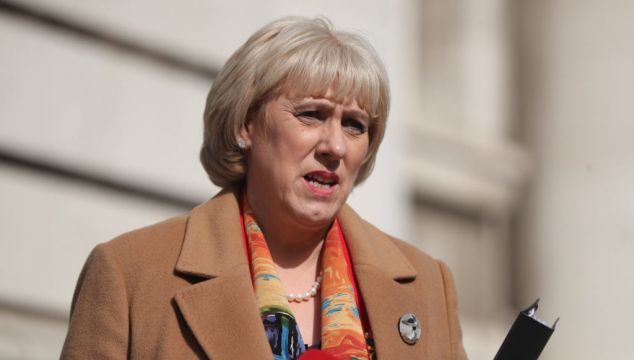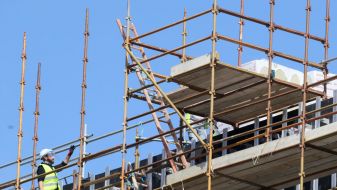A reported €12 increase in weekly social welfare rates has been labelled as “a serious disappointment” and “totally inadequate” by a pensioners’ group and a social justice think tank.
Budget 2023 is set to be officially unveiled on Tuesday afternoon, but many of the major measures expected to be announced have been reported in recent days.
On Sunday, Minister for Social Protection Heather Humphreys said a €20 increase in weekly welfare payments and the State pension would not allow for other targeted social welfare measures.
“The cost that a €20 across the board would mean, it would mean €1.5 billion. We know we have to work within limits,” she said on RTÉ radio on Sunday.
“I think that €20 would be very ambitious in terms of if I do that I won’t have any money left to target other measures.”
Campaigners said this issue has the potential to stir pensioners in a similar way to a 2008 controversy where pensioners protested after it was suggested that over 70s may not be automatically entitled to medical cards.
Speaking to the PA news agency, Dr Sean Healy, of Social Justice Ireland, said: “If you want to target the people who are most impacted by the rising cost of living, that group are targeted by increasing social welfare”.
“By going with €12 it means, when those one-off things are gone, they’re gone.
“People are left with an income which will be worth less than is currently the situation. So the value of their social welfare payment will be less in 2023 than it was at the start of 2022.
“The people at the bottom have a higher cost of living than the people further up the income distribution.”
He added: “There is so much going on in the Budget, there’s a danger that people will feel that all the bits once they’re added together are better than a core increase in welfare rates.
“The reality is that when the various one-off things are put into place, even one-off additional weeks of welfare, they will wash out of the system in a very short time.
“People will be left with this situation where the value of their social welfare payment, which is the only income that they have, the value of that will have gone down substantially because of the rising cost of living.
“It should have been the Government’s top priority to ensure that the weakest in society did not have to carry the burden of the rising cost of living.”
When asked about if it was a question of not being able to afford it, Dr Healy said that it was a choice.
“To pay an additional €8 is not beyond the capacity of the Exchequer, even if they’re paying the rest of the stuff that they’re paying.”
“There are substantial resources available for distribution in this Budget. The Government’s choices on how to distribute that money will result in the poorest finding themselves worse off in the coming years than they are now.”
Impact on older people
Sue Shaw, chief executive of the Irish Senior Citizens Parliament, a group that represents older people in Ireland, said the €12 increase was disappointing, and that other measures announced would not cushion the shortfall.
“The Government had committed some time ago to the reality that the pension and social welfare rates needed to be index linked to the average industrial wage.
“That would have meant that that would have needed an increase of €42. So starting with €12 in this Budget does not show a willingness to address the shortfall.
“We are pushing people on social welfare, particularly older people who have absolutely no potential to gain any more income, into poverty now.
“It doesn’t go anywhere towards matching the reality of the increase in costs that people are facing. 137 per cent in the last 18 months for oil. And where will €12 go towards that?”
She said that the proposal was “short-sighted” in the context of older people being more vulnerable to the cold.
“Older people are more vulnerable to the cold, but they are also more vulnerable to a range of health issues. And that means that we’re saying ‘Well we’ll save on one area what we’ll spend on health.’ The bottom line is that’s what’s going to happen for people who can make it that far.
“For a lot of our members they are choosing which room in the house they may heat, protein meals may mean beans on toast as opposed to proper protein.
“We had members who were going out during the summer sales trying to buy extra duvets to keep themselves warm.

“So for us, it’s a serious disappointment.”
Eddie Conlon, of the Cost of Living Coalition, said that the increase does not match the rate of inflation or the request of at least €20 a week increase in core welfare payments.
“These are cuts to people’s living standards. Despite what the Government is saying about protecting those who need help, they’re not. They’re actually bringing in cuts to living standards.”







